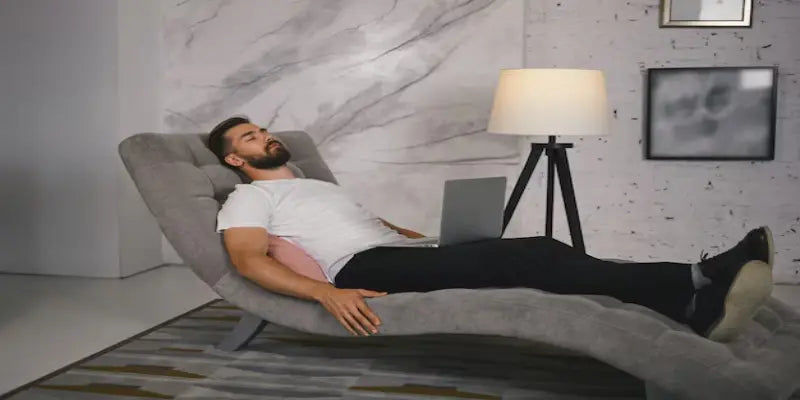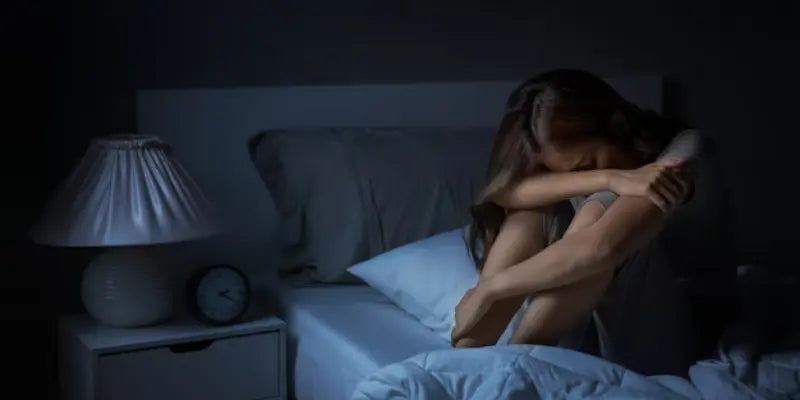
How Technology is The Future of Sleep Health
With work stress, hectic schedules, and increasing screen time, it is a big challenge to get quality sleep at night. We often blame technology for not getting enough sleep and low quality sleep, but now, with so many advancements, technology can be used to improve sleep quality. From smart mattresses to sleep tracking apps, technological advancements are shaping the future of sleep. In this blog, we’ll discuss how technology is the future of sleep health and how it makes us sleep better and ensures we wake up refreshed and rested in the morning.
The Importance of Sleep
Before going deep into the technological advancements, let us first understand why sleep is so important for us. Sleep is not just to rest; it is also a very important process for our physical and mental health. Here is what sleep helps us with:
- Restore energy: During sleep, the body repairs tissues, builds muscle, and strengthens the immune system.
- Improve cognitive functions: Sleep enhances memory, creativity, and problem-solving skills.
- Maintain emotional balance: Adequate sleep is linked to better mood regulation and stress management.
- Support physical health: Chronic sleep deprivation is associated with various health issues, including obesity, diabetes, cardiovascular diseases, and weakened immunity.
With all the benefits given, one must have understood how important it is to improve sleep quality. Let’s explore how technology is helping us achieve better sleep.
Smart Mattresses
Mattresses that fit everyone are a thing of the past. Today, smart mattresses are changing the sleep market. These high-tech beds use sensors and algorithms to provide customized comfort and support. Smart mattresses have the following features:
- Adjustable firmness: Smart mattresses can adjust their firmness levels based on your preferences and sleeping position.
- Temperature control: Some mattresses come with temperature regulation technology to keep you cool or warm throughout the night.
- Sleep tracking: Embedded sensors monitor your sleep patterns, including duration, quality, and disturbances.
Even though we don’t see much of it in India, it is there if you need it. With a smart bed, you can automatically adjust the firmness and support throughout the night based on your movements. It also offers features like snore detection and temperature balancing to ensure optimal sleep conditions.
Wearable Sleep Trackers
It makes sense: before we begin looking for answers to our sleep problems, we must first understand when and why they occur. Sleep tracks have been an amazing invention in the last decade. From FitBits to sleep tracking patches under your covers to complete sleep studies that record every sleeping second, understanding our sleep habits is the first step toward improving them. Devices like Fitbit, Apple Watch, and Oura Ring provide comprehensive insights into your sleep patterns. These wearables monitor:
- Sleep stages: They track different stages of sleep, including light, deep, and REM sleep.
- Heart rate: Continuous heart rate monitoring helps identify sleep disruptions.
- Movement: Accelerometers detect movements to determine wakefulness and restlessness.
The data collected through these devices is linked with smartphone apps, which provide users with detailed sleep reports and personalized guidance for better sleep quality. For example, the Oura Ring analyzes body temperature, heart rate, and movement data to provide actionable insights and trends regarding your sleeping habits.
Sleep trackers are not doctors: given the amount of information they can collect, they cannot determine whether your poor sleep is caused by honking cars outside, job-related tension, or your partner with restless leg syndrome. They can, however, be valuable in your doctor's diagnosis and can help a professional decide not just what your sleep issues are, but also how to solve them.
Sleep Apps
There are so many sleep apps available online, and these smartphone apps are dedicated to sleep improvement. These apps offer various features to help users fall asleep faster, sleep better, and wake up feeling refreshed. Some popular sleep apps include:
- Calm: This app offers guided meditations, sleep stories, and relaxing sounds to help users unwind and fall asleep.
- Headspace: Known for its mindfulness exercises, Headspace also provides sleepcasts and sleep music designed to create a conducive sleep environment.
- Sleep Cycle: This app uses your phone's microphone and accelerometer to monitor your sleep patterns and wake you up during the lightest sleep phase, ensuring a smoother wake-up experience.
These apps not only assist in falling asleep but also provide valuable data to help users understand and improve their sleep habits.
White Noise Machines
White noise machines have been a game-changer for people struggling with sleep disturbances caused by external noises. These devices produce soothing sounds, such as rain, ocean waves, or gentle humming, which mask background noises and create a calming sleep environment. Advanced white noise machines come with features like:
- Customizable sound profiles: Users can choose from a variety of sounds and adjust the volume and intensity to their liking.
- Smart connectivity: Some machines can be controlled via smartphone apps and integrated with other smart home devices.
White noise machines like the LectroFan and Marpac Dohm have received positive reviews for their effectiveness in promoting better sleep.
Ultrasonic Aromatherapy Diffusers
Aroma therapy has long been used to promote relaxation and improve sleep quality. Ultrasonic aromatherapy diffusers are an innovative way to incorporate essential oils into your sleep routine. These devices use ultrasonic waves to disperse a fine mist of water and essential oils into the air, creating a calming and fragrant environment. The benefits of ultrasonic aromatherapy diffusers include:
- Relaxation and stress relief: Essential oils like lavender, chamomile, and sandalwood are known for their calming properties, helping to reduce stress and anxiety before bedtime.
- Improved air quality: Diffusers can help humidify the air, which can be particularly beneficial in dry climates or during the winter months.
- Enhanced sleep environment: The soothing scents and gentle mist create a tranquil atmosphere conducive to falling and staying asleep.
Popular ultrasonic diffusers like the ReNe-Maurice offer features such as adjustable mist levels, timer settings, and ambient LED lighting to enhance the overall sleep experience.
Smart Lighting
Light plays a crucial role in regulating our circadian rhythm, the body's internal clock that dictates sleep-wake cycles. Exposure to natural light during the day and dim lighting in the evening helps signal the brain when it's time to wake up and sleep. Smart lighting solutions are designed to mimic these natural light patterns. Features include:
- Sunrise simulation: Smart lights gradually brighten in the morning to simulate a natural sunrise, helping you wake up more naturally and feel more energized.
- Adjustable color temperature: Throughout the day, smart lights can shift from bright, blue-toned light to warm, amber light in the evening, promoting relaxation and melatonin production.
Philips Hue and Lifx are popular smart lighting systems that offer customizable lighting schedules and can be controlled via smartphone apps or voice assistants.
Sound Machines and Relaxation Gadgets
Apart from white noise machines, other sound machines and relaxation gadgets are designed to improve sleep quality. These devices often incorporate sound therapy, light therapy, and relaxation techniques. Examples include:
- Dodow: A sleep aid device that projects a rhythmic light pattern on the ceiling to guide your breathing and calm your mind, helping you fall asleep faster.
- Somnox Sleep Robot: This cuddly robot mimics breathing patterns to help you relax and fall asleep. It also plays soothing sounds like lullabies and guided meditation.
These gadgets are especially useful for individuals who have difficulty winding down and falling asleep due to stress or anxiety.
The Future of Sleep Technology
As technology continues to advance, the future of sleep technology looks promising. Here are some trends and innovations to watch for:
- AI and machine learning: Future sleep technologies will leverage AI to provide even more personalized sleep recommendations and adjustments in real-time.
- Integration with smart home systems: Sleep devices will increasingly integrate with other smart home devices, creating a seamless and automated sleep environment.
- Health monitoring: Advanced sleep technologies will not only track sleep but also monitor overall health metrics, providing a holistic view of an individual's well-being.
- Virtual reality: VR technology may be used to create immersive relaxation experiences, helping users unwind and prepare for sleep more effectively.
Conclusion
Technology is undeniably transforming the way we sleep, offering innovative solutions to improve sleep quality and overall well-being. From smart mattresses and wearables to sleep apps and sound machines, these advancements are helping us understand and enhance our sleep patterns.
As we continue to embrace these technologies, the future of sleep looks brighter, promising better rest and more productive, healthier lives. Embracing these advancements can lead to a world where sleepless nights become a thing of the past and everyone can wake up feeling refreshed and ready to take on the day.








